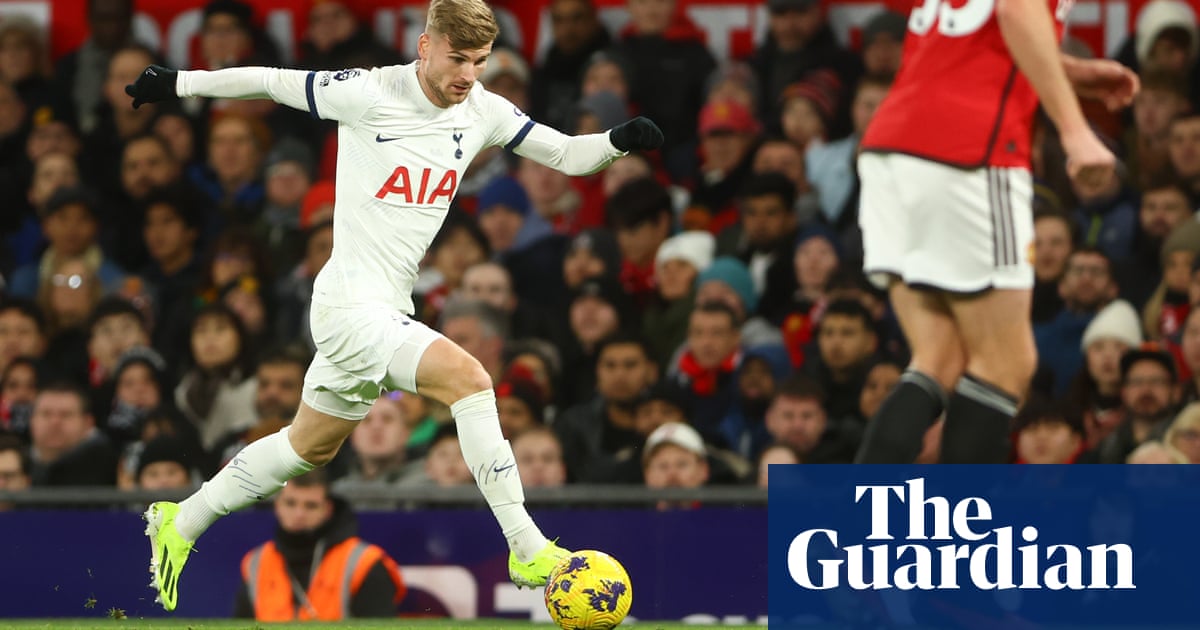
Things are going well for Jonathan Morgan. His team, Burnley Women, are the only unbeaten side in the third and fourth tiers of women’s football in the UK, having gone 16 games without losing since the start of the season.
It is also a strange time for Morgan, who spent seven years at Leicester, taking the women’s team from the fourth tier to the Super League before being dismissed in November 2021. The sacking forced him to pause and consider his options, but also reflect on what had happened. It is fair to say he feels happy and appreciated at Burnley whereas that wasn’t always the case at Leicester.
He describes a few everyday scenarios that, he feels, are the difference between the clubs and how they integrate the women’s team. “Myself and the striker Courtney Willis were doing a one-to-one analysis session in the men’s first team analysis room and the men’s assistant coach, Craig Bellamy, walked in. You just think: ‘Oh shoot, I gotta get out.’
“You automatically think there’s a hierarchy, but he’s just: ‘How long are you going to be mate? Don’t leave on my account, if you’re going to be another half an hour I’ll just go and get another room.’ Then, he sat there and went through a couple of clips with me and Courtney. It was just class.
“Another time I was printing up some kit and the men’s manager, Vincent Kompany, was in the kit room with me, just sat there chatting while I was doing it. It’s these little moments that show you a club that’s really truly together. I never ever had that feeling at Leicester and I don’t think many clubs genuinely have that feeling.”
What made the exit from Leicester harder was that so many of his family were or had been part of the side’s rise. His sister Holly was captain and their father, Rohan, used to be the chairman. Jonathan’s other sister Jade is, as general manager, the only remaining Morgan at the club.
The fear for Leicester was perhaps the nepotistic image the Morgan involvement gave, but as a family the Morgans invested heavily in the building of the club from the bottom up, both financially and time-wise. Morgan and his father’s business financed Leicester all the way up to the Championship-winning season.
“We’re talking about hundreds of thousands of pounds over those years. If you look around now you see a wealth of players that came through our club and are doing well in other clubs in the Midlands. We’ve probably held up the Midlands from a player pathway point of view. We were just a family club,” says Morgan.
“When I first started we had nothing, it was nothing. I always heard what people thought: ‘He got there because his dad took over’, that type of thing.
“It is true, my dad gave me the opportunity originally. But he didn’t do the coaching, he didn’t do the tactics, he didn’t go through badges and get the licences. So that hurt.
“Holly as a player got it, too: ‘She’s only captain because of her brother.’ No one really took into consideration how that affected us. We just had to smile and put on a strong face because that was just the position we were in.”
After all the success, things changed, Morgan feels, when Leicester took full control of the women’s team in 2020, just after they had won promotion to the Super League. Morgan was sacked after eight winless games at the start of the 2021-22 season and he has the feeling that his family’s presence was “a ticking timebomb from the moment that Leicester took over”.
Being forced out was hard. “It was a horrible time,” he says. “We’re all clever enough to know when you’re wanted somewhere and when you’re not wanted. Even during the Championship season, it was very, very difficult. Without going into too much detail, we had little targets set for our first year in the WSL that were really unattainable. You start wondering why they are setting unattainable targets and you start wondering why you are not getting the players you want and why no one is fighting your corner.”
That meant when the sacking came “it wasn’t as hard as it maybe would be otherwise”. Morgan wasn’t sure whether he wanted to go back into football. He has a masters in quantity surveying and still runs his housing business, so in a way doesn’t need football but says he was disappointed at the lack of support from the FA and lack of interest from other clubs after his dismissal, particularly as one of the few black managers in the women’s game.
“A lot of [the talk about support for black and ethnic minority managers] is lip service,” he says. “I don’t really talk too much about it because it’s such a polarising topic and people just either support you or they just go straight against you when you talk about it. All I can say is that I don’t think in any way, shape or form over the years I’ve had any real support from any of the governing bodies.
“It feels very, very easy to move on a manager from an ethnic minority or of colour and you don’t really see them come back in straight away. I barely get approached, if ever. Burnley was probably the first club to properly approach me and say: ‘We want you.’ I don’t think there’s enough support out there.”
Morgan has stepped out of the family shadow and he feels it is a refreshing change. “One of the things I love about Burnley is that they brought me in on my merits, rather than what people said or what people think about me,” he says. “Hopefully, so far, they’ve seen the success in that, we’re the only team in the league that hasn’t lost yet.”
His time at Burnley has helped relight the fire. “One thing I needed to find out was whether I loved being in football because I was with Jade, Holly and my dad. Was that my pull? Was that my reason? It really was a strong one. Everything I did, I always had to think about the effect on them too.
“At Burnley I can be more focused on myself and the team and not the wider impact my decisions could have. It’s nice to be able to be Jonathan rather than the Morgan family or the Morgan dynasty.”












